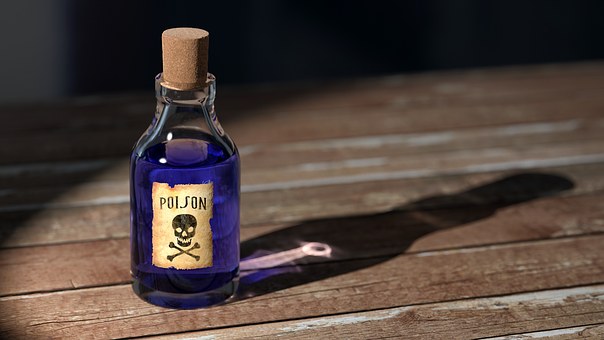Understanding how to safely handle pool chemicals is an absolute necessity for any pool owner who maintains their own pool, spa, or hot tub, or stores their own chemical supplies. Pool chemicals can be a dangerous hazard when not handled properly, and can even pose a risk to the bathers and others within the vicinity in addition to the individual handling the supplies. Every year, more than 5,000 people in the United States are hospitalized for pool chemical related injuries.
Acute exposures to dust and gases from Chlorine containing pool chemicals can lead to respiratory injuries, asthma exacerbation and eye and skin irritation. Some signs of low level exposure to pool chemicals include but are not limited to eye, skin, or airway irritation, sore throat, and cough. Signs of a higher level exposure can include chest tightness, wheezing, shortness of breath, and bronchospasm. If exposure is severe, the symptoms can expand to include fluid accumulation in the lungs, may not be noticed until several hours after the exposure, and could potentially result in death. Chemical burns or ulcerations are also possible, and exposure to compressed liquid chlorine can cause frostbite.
Chlorine, Sodium and Calcium Hypochlorite are three common chemicals used in pool maintenance. While not explosive or flammable by themselves, all three support and increase combustion, and can result in fire when coming into contact with organic materials such as oil, grease, wood, or maintenance rags.
When handling pool chemicals, it is important to carefully read and follow the manufacturer’s instructions for safe handling, storing, and disposing of the chemicals.
Never allow children, including teens, to handle pool chemicals. Lock your storage area to prevent access to children, pets, and unauthorized users.
Remember to replace the lid on chemical containers, as small amounts of water can get into the chemical if left unprotected, and cause a negative reaction.
Be sure to clean tools and equipment that has come into contact with pool chemicals, and never use the same tools for multiple chemicals. Use separate designated scoops for each.
Store chemicals independently of each other – most are incompatible. Never use chemicals that are not in original containers and always read the labels to be sure you are using the correct product.
Never mix old and fresh chemicals, even if they are the same type.
Maintain a clean storage area free from debris, rags, or clutter, and never store other combustible or flammable products nearby.
The only safe way to dispose of your old or unused pool chemicals is by bringin them to a hazardous waste material collection site. Never pour chemicals down the drain or sewer.
Avoid “stockpiling” chemicals – only purchase what you know you will use each season to minimize the amount of leftover chemicals to be stored.
Be sure to have all recommended safety equipment in place before handling any chemicals.
With proper education, most homeowners can lear safe chemical handling procedures, but if you are not up to the task, consider hiring a professional to handle the upkeep for you. These professionals are well versed in safety and emergency practices.

Recent Comments